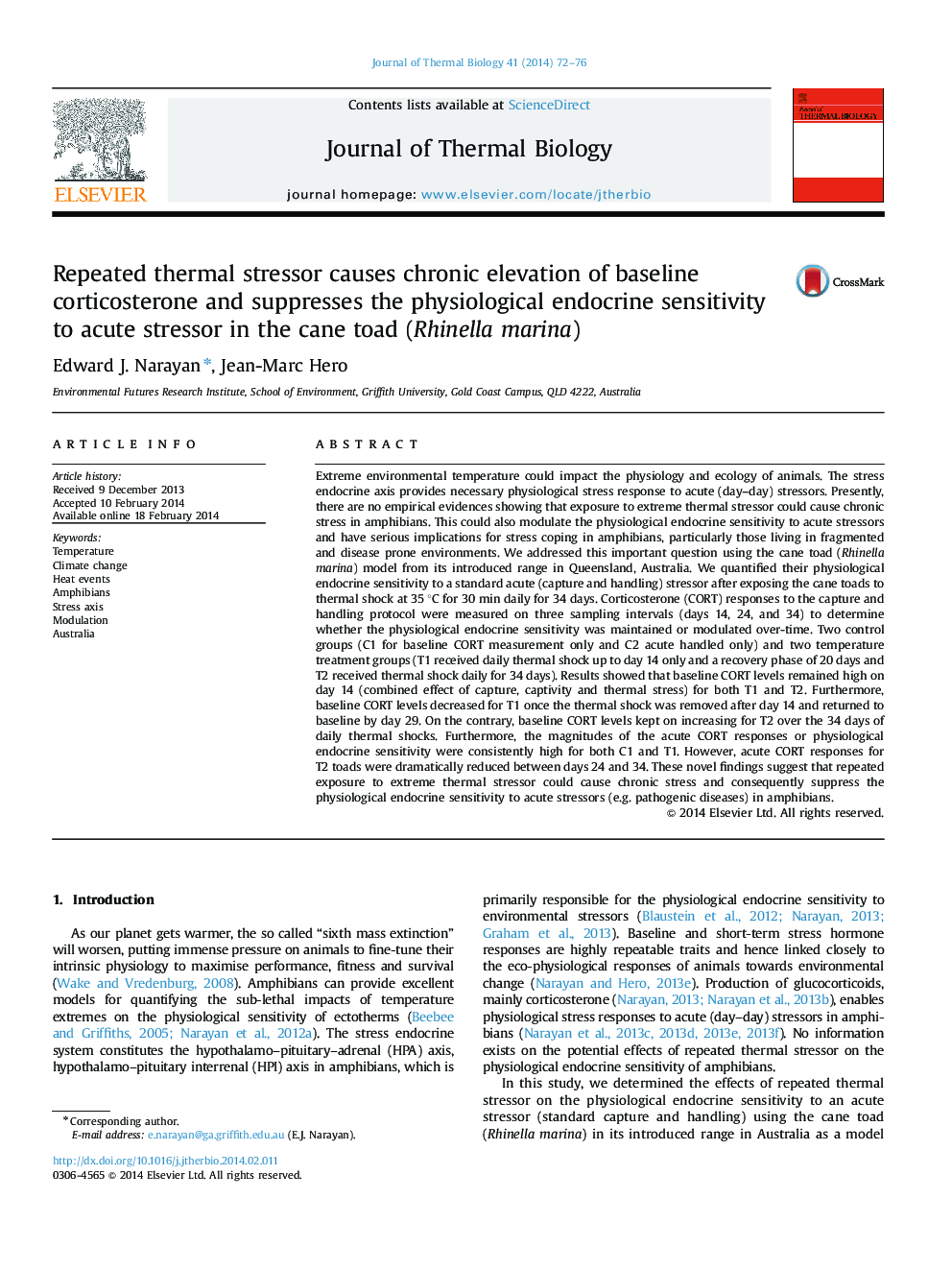| کد مقاله | کد نشریه | سال انتشار | مقاله انگلیسی | نسخه تمام متن |
|---|---|---|---|---|
| 2842951 | 1571104 | 2014 | 5 صفحه PDF | دانلود رایگان |

• Chronic thermal stress modulates the stress endocrine axis in the cane toad.
• Thermal shock elevated baseline urinary corticosterone in the toads.
• Termination of heat shock led to return of corticosterone levels to baseline.
• Prolonged thermal stress diminished corticosterone responses to acute stressor.
Extreme environmental temperature could impact the physiology and ecology of animals. The stress endocrine axis provides necessary physiological stress response to acute (day–day) stressors. Presently, there are no empirical evidences showing that exposure to extreme thermal stressor could cause chronic stress in amphibians. This could also modulate the physiological endocrine sensitivity to acute stressors and have serious implications for stress coping in amphibians, particularly those living in fragmented and disease prone environments. We addressed this important question using the cane toad (Rhinella marina) model from its introduced range in Queensland, Australia. We quantified their physiological endocrine sensitivity to a standard acute (capture and handling) stressor after exposing the cane toads to thermal shock at 35 °C for 30 min daily for 34 days. Corticosterone (CORT) responses to the capture and handling protocol were measured on three sampling intervals (days 14, 24, and 34) to determine whether the physiological endocrine sensitivity was maintained or modulated over-time. Two control groups (C1 for baseline CORT measurement only and C2 acute handled only) and two temperature treatment groups (T1 received daily thermal shock up to day 14 only and a recovery phase of 20 days and T2 received thermal shock daily for 34 days). Results showed that baseline CORT levels remained high on day 14 (combined effect of capture, captivity and thermal stress) for both T1 and T2. Furthermore, baseline CORT levels decreased for T1 once the thermal shock was removed after day 14 and returned to baseline by day 29. On the contrary, baseline CORT levels kept on increasing for T2 over the 34 days of daily thermal shocks. Furthermore, the magnitudes of the acute CORT responses or physiological endocrine sensitivity were consistently high for both C1 and T1. However, acute CORT responses for T2 toads were dramatically reduced between days 24 and 34. These novel findings suggest that repeated exposure to extreme thermal stressor could cause chronic stress and consequently suppress the physiological endocrine sensitivity to acute stressors (e.g. pathogenic diseases) in amphibians.
Journal: Journal of Thermal Biology - Volume 41, April 2014, Pages 72–76